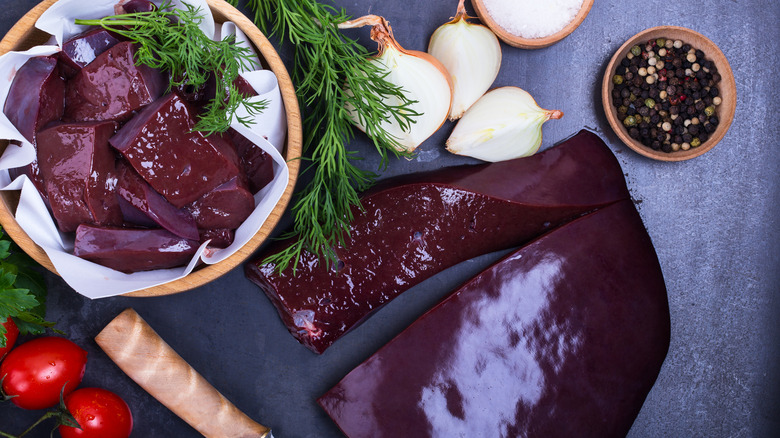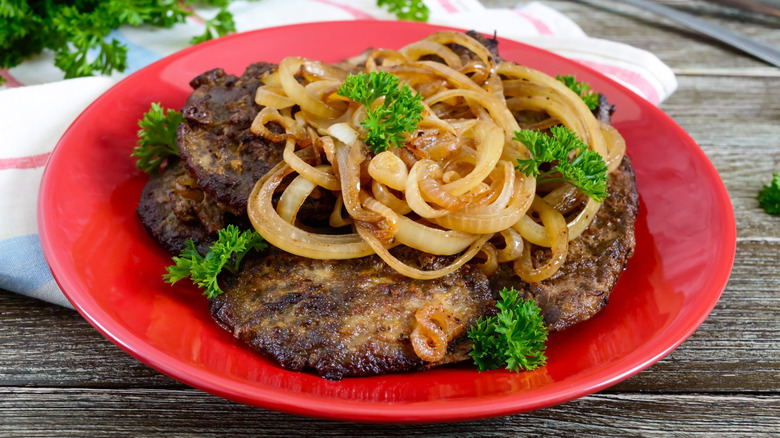The Polarizing Organ Meat That's One Of The Most Nutrient Dense Foods You Can Eat
Few foods spark as much debate as liver. Some people, like those who follow the Liver King Diet, swear by it, while others can't get past the texture, the taste, or the thought of eating an organ. Add in concerns about toxins, cultural preferences, or a lack of knowledge of how to prepare it properly, and it's easy to see why this food has become one of the most polarizing on the plate.
But before you write liver off entirely, it may be worth a second look. Behind its strong flavor lies a nutritional powerhouse, according to Destini Moody, a registered dietitian at Top Nutrition Coaching. "Just like human liver, the liver we eat filters every single nutrient from the product of our digestion to get these nutrients to where they need to go in the body," she explained. "As a result, many key nutrients that our bodies need are stored in the organ, making it legitimately one of the most nutrient-dense foods you can find."
Moody said that liver is good for you because it's an excellent source of B vitamins, like B12, folate, and B2, as well as being rich in copper. "Also, it's high in vitamin A, which is a fat-soluble vitamin that's rarely present in animal products, and certainly not in the quantities found in liver," she said. Finally, it's rich in protein, which Moody says can be great if you are active or looking to maintain your muscle mass.
Is there such a thing as too much liver?
Like any good thing, however, it is possible to overindulge in liver. "On the one hand, you're getting a lot of nutrition in just a few bites of food," noted Moody. "On the other hand, you can quickly put yourself at risk of nutrient toxicities if you get carried away."
The biggest risk is that you'll get too much vitamin A, she said. Water-soluble vitamins, like the B vitamins and vitamin C, can easily be cleared from your body through your urine when you take in more than you need. However, vitamin A is fat-soluble, so it gets stored in your fatty tissue. "If you get too much, nasty side effects that affect both the gut and nervous system can occur, along with even weakening your bones," said Moody. It's also possible to get too much copper from eating liver, but your body is better at eliminating it.
"Still, it's best to be on the cautious side and limit your intake to just 4 ounces of liver per week, which is plenty to get the nutrients you need from the superfood," Moody advised.
Delicious ways to prepare and serve liver
Moody said slicing liver thin and sauteing it with onions in a pan is the most popular way to eat it, since the fatty texture and flavor pair well with caramelized onions. "Another clever way to eat it if you're not yet a convert, but still want the nutrients, is to chop or grind it into other ground meats like ground pork or beef," she said.
If you want to tone down the intensity of flavor inherent to this organ meat, Moody suggests soaking it in milk or buttermilk for about half an hour before cooking it. This will also improve texture and make it more tender if you find liver's chewiness to be off-putting.
Do the health benefits of liver sound compelling to you, or are you considering following more of an ancestral diet like the Liver King Diet? Why not learn more about the surprising health benefits of eating organ meats?


